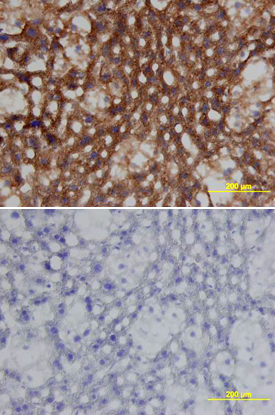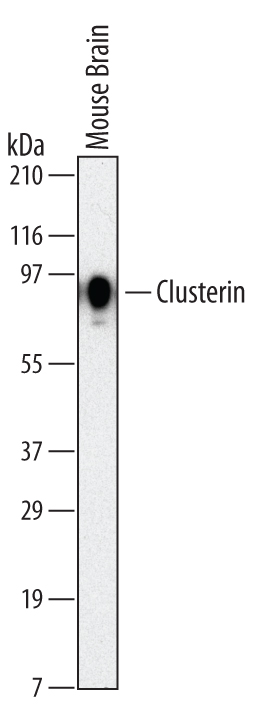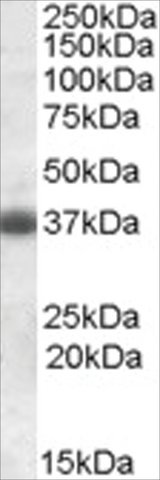Clu
| Gene Symbol | Clu |
|---|---|
| Entrez Gene | 12759 |
| Alt Symbol | AI893575, ApoJ, Cli, D14Ucla3, SP-40, Sgp-2, Sgp2, Sugp-2 |
| Species | Mouse |
| Gene Type | protein-coding |
| Description | clusterin |
| Other Description | Apolipoprotein J|apo-J|clustrin|complement lysis inhibitor|sulfated glycoprotein 2|testosterone repressed prostate message|testosterone repressed prostate message-2 |
| Swissprots | Q06890 |
| Accessions | AAF06365 EDL01130 Q06890 AF248057 AAF67184 AF248058 AAF67185 AK132030 BAE20954 BC075668 AAH75668 BY248781 CK623407 D14077 BAA03162 L05670 AAA37284 L08235 AAA37422 S70244 AAB30623 XM_006518503 XP_006518566 XM_006518504 XP_006518567 NM_013492 NP_038520 |
| Function | Functions as extracellular chaperone that prevents aggregation of nonnative proteins. Prevents stress-induced aggregation of blood plasma proteins. Inhibits formation of amyloid fibrils by APP, APOC2, B2M, CALCA, CSN3, SNCA and aggregation-prone LYZ variants (in vitro). Does not require ATP. Maintains partially unfolded proteins in a state appropriate for subsequent refolding by other chaperones, such as HSPA8/HSC70. Does not refold proteins by itself. Binding to cell surface receptors triggers internalization of the chaperone-client complex and subsequent lysosomal or proteasomal degradation. When secreted, protects cells against apoptosis and against cytolysis by complement. Intracellular forms interact with ubiquitin and SCF (SKP1-CUL1-F-box protein) E3 ubiquitin-protein ligase complexes and promote the ubiquitination and subsequent proteasomal degradation of target proteins. Promotes proteasomal degradation of COMMD1 and IKBKB. Modulates NF-kappa-B transcriptional activity. Promote |
| Subcellular Location | Secreted {ECO:0000269|PubMed:12551933}. Nucleus {ECO:0000269|PubMed:12551933}. Cytoplasm {ECO:0000269|PubMed:12551933}. Mitochondrion membrane {ECO:0000250}; Peripheral membrane protein {ECO:0000250}; Cytoplasmic side {ECO:0000250}. Cytoplasm, cytosol {ECO:0000269|PubMed:12551933}. Microsome {ECO:0000250}. Endoplasmic reticulum {ECO:0000250}. Cytoplasmic vesicle, secretory vesicle, chromaffin granule {ECO:0000250}. Note=Can retrotranslocate from the secretory compartments to the cytosol upon cellular stress. Detected in perinuclear foci that may be aggresomes containing misfolded, ubiquitinated proteins. Detected at the mitochondrion membrane upon induction of apoptosis (By similarity). {ECO:0000250}. |
| Tissue Specificity | Most abundant in stomach, liver, brain, and testis, with intermediate levels in heart, ovary and kidney. |
Search more




![Western Blot: Clusterin/APOJ Antibody [NBP1-06027] - (0.3ug/ml) staining of Rat Brain lysate (35ug protein in RIPA buffer). Primary incubation was 1 hour. Detected by chemiluminescence.](http://www.bioprodhub.com/system/product_images/ab_products/5/sub_9/21540_Clusterin-APOJ-Antibody-Western-Blot-NBP1-06027-img0003.jpg)


